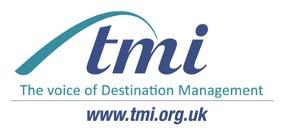What's next for Destinations?

18th February 2021
The following notes are taken from the discussions during the TMI zoom call on 28th January and comments received in advance of the event. We have tried to summarise the key points and issues.
We are very keen to hear your views on what you think we should do next? Particularly members who have expertise they’d like to offer to discuss a particular issue and to consider how we jointly solve some of the challenges? If you have any thoughts or comments on ways in which the Tourism Management Institute can help work our way through some of the issues described below, please do get in touch by 2nd March - secretary@tmi.org.uk
Please note: Some comments (especially those received by email) are reported verbatim, hence the changes in styles. We have used DMO as shorthand, though some comments relate more to local authorities than destination marketing and management organisations.
General
General sense of optimism the tourism industry will bounce back. A ‘staycation boom’ is being forecast by many, but this is not the case everywhere and in every sector of the industry. There are significant differences in demand for rural and coastal areas, and towns and cities; and for serviced and non-serviced accommodation.
This is an opportunity to think about the changes we’d like to see within the industry, and how to be competitive post-Covid. What are your views?
There were numerous pleas for more clarity on ending lockdown, tiers, regulations etc.
Funding and commercial income, changing structures and survival of DMOs
Many comments about funding uncertainty, particularly with reduced commercial income from membership subscriptions and campaign participation
Examples of funding cuts and losses in income ranged from 40 – 70%. Local authorities around the country are reducing their budgets. How can this shortfall be filled?
One DMO leader said: “We have lost 20 staff and half of our turnover. This has a massive impact on our ability to respond, but also on our ability to operate as a commercial operation, as a not for profit commercial operation that puts pressure on us in terms of what we can deliver with no certainty of where the funding is coming from in the future. We do need to turn our attention to how we become more sustainable because come April, there's a massive question mark over our budgets and I'm fearful that we will lose further staff because we won't be able to pay them because those businesses that normally support us are not in a position to pay their membership fees. Commission isn't there through the business that we generate for them”.
Survival of DMOs and changing structures
DMOs have taken a hit during the pandemic but are none the less important. There are issues with business sustainability. How have local authorities have responded to this? Have any been "taken back in house"? Is there a move to consolidate and achieve economies of scale?
Arms-length DMOs are finding it increasingly difficult to generate revenues from marketing services as a whole range of alternative channels open up eg OTAs, Google, social media. The pandemic has compounded this. Tourism providers, particularly in a tough financial environment, are likely to see marketing benefits as the key component of any membership fee.
In the past marketing service revenues would have subsidised other DMO central costs etc, so the impact of channel competition and the pandemic has created a double whammy.
The big future agendas are likely to be Covid recovery, Brexit, climate change, over-tourism, devolution. Much of this will be about destination management. Destination management in most cases is something undertaken by local authorities, protected areas, forests etc. Arms-length DMOs will rarely also occupy this space. Are DMOs reliant on commercial funding viable at their current size and scale?
What is the future for convention bureau, group travel and related sectors such as events?
Widening the remit from destination marketing to destination management, from place marketing to place shaping and regeneration
Given the pandemic-induced pent-up demand, and likely over-tourism in some places at peak periods, do DMOs need to rebalance their priorities to focus more on destination management rather than marketing? Does this require new skills?
Is it time to re-define DMO? Marketing or management or both?
What should the relationship be between VisitEngland/VisitBritain, DMOs (of every shape and size), and Local Authorities? How can we gather more organisations into the ‘fold’ for mutual support and industry development?
The National Parks are working together, bringing together staff from different areas and disciplines to look at capacity issues and over-tourism, how to engage visitors in more meaningful dialogue, how to enhance understand and enjoyment for all. There is an increased interest in regenerative tourism.
Climate change is now at the forefront of minds. Is enough being done within the industry? Are we fit for the future? Members feel there needs to be a national strategy and more clarity from VisitEngland/VisitBritain about their stance and leadership on these issues.
OTAs and TXGB
Is TXGB actually helping destinations reach more customers? Hard evidence needed. DMO’s are invited to share updates on how TXGB working for them
How can we collectively disrupt the OTAs?
Love local
Is there an opportunity to work now to reinforce and continue the trend (induced by Covid) toward supporting ‘local’, staying local, local travel etc? What initiatives are in place to leverage local loyalty?
Business support
During the pandemic some DMOs and LAs have focused primarily on helping businesses to survive? What have they done? What lessons to share with others?
How well equipped are DMOs and LAs to offer appropriate and practical business support? Which areas are working with their LEPs? Any positive benefits?
Are there any new schemes relating to rural tourism support? The pandemic has pushed open space and rurality to the forefront of many people's wish-list. How are we currently supporting the sector? What could we do better? How are people likely to respond to changes in rural tourism funding post-Brexit and loss of EU monies? What do we need to do to fill the gap? Any local gen on UK Shared Prosperity Fund?
Business support has included direct grants, workshops, advice and mentoring. Which of this has been most successful? What advice has ‘stuck’? What changes are likely as a result of the investment in business support?
Some areas have also invested in mental health support, for their own staff and for businesses.
Looking to the future
Could we share recovery plans and learn more from each other?
DMO review with DCMS will be launched later this month. All members are encouraged to participate in this. Details will be shared as soon as they are available.
What does the industry need from DMOs and LAs? Are they getting what they need?
Engaging with hotel chains
This is one for destinations with non-mandatory membership schemes: A number of hotel chains, particularly budget chains, are not great at engaging at destination level but are driving significant growth in room stock. As a result, it is difficult to engage at any meaningful level. How can we collectively drive the message that destinations need investment given that consumers come to destinations not (budget) hotels, and that there is a benefit to working collaboratively? Especially with travel trade and business events with a lack of local engagement. It isn’t just the money but data, supporting event bids with rooms etc. It seems the larger the room volume, the less engaged they are.
‘Asks’ for the Government
- A tourism sector specific grant to replace the current general grant which is woefully inadequate in keeping tourism businesses operationally ready to re-open. This grant should be tailored for both those businesses that pay Business Rates and those that don’t.
- An extension of Business Rate Relief for another 12 months to March 31st
- A successor, and longer-term loan scheme to replace CBILS.
- VAT permanently set at 5% for tourism businesses.
- The immediate use of Visit Britain’s extra marketing grant to support local destination management organisation’s survival given the steep drop in their membership income.
- Commitment to unlock and use parliamentary support for a clear and deliverable long-term plan for developing and sustaining England’s tourism potential, especially through the creation of a sector specific ministerial team to lead the country on all tourism and hospitality matters.
Thank you to everyone who has contributed so far, either by email or on the zoom call.

0 comments
Leave a comment